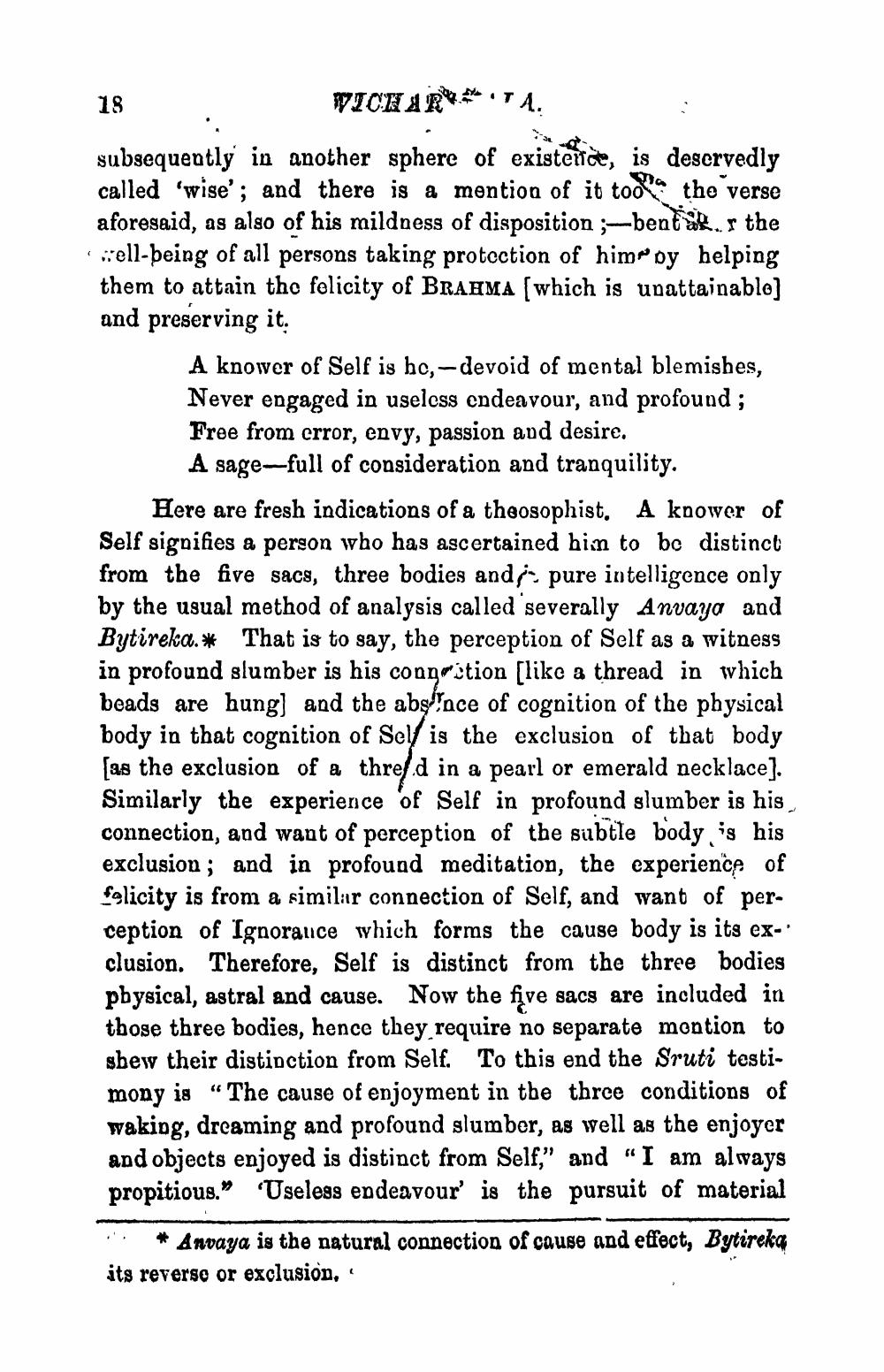________________
18
WICHARITA. subsequently in another sphere of existeifct, is descrvedly called 'wise'; and there is a mention of it took the verse aforesaid, as also of his mildness of disposition ;-bentuk r the
ell-being of all persons taking protection of himxoy helping them to attain the felicity of BRAHMA (which is unattainablo] and preserving it
A knower of Self is hc, -devoid of mental blemishes, Never engaged in useless endeavour, and profound; Free from crror, envy, passion and desire.
A sage-full of consideration and tranquility. Here are fresh indications of a theosophist. A knower of Self signifies a person who has ascertained him to be distinct from the five sacs, three bodies and pure intelligence only by the usual method of analysis called severally Anvaya and Bytireka.* That is to say, the perception of Self as a witness in profound slumber is his congrition (like a thread in which beads are hung) and the absence of cognition of the physical body in that cognition of Sell is the exclusion of that body (as the exclusion of a threld in a pearl or emerald necklace]. Similarly the experience of Self in profound slumber is his connection, and want of perception of the subtle body is his exclusion ; and in profound meditation, the experience of folicity is from a similar connection of Self, and want of perception of Ignorance which forms the cause body is its ex-' clusion. Therefore, Self is distinct from the three bodies pbysical, astral and cause. Now the five sacs are included in those three bodies, hence they require no separate mention to shew their distinction from Self. To this end the Sruti testimony is “The cause of enjoyment in the three conditions of waking, dreaming and profound slumber, as well as the enjoyer and objects enjoyed is distinct from Self," and "I am always propitious." 'Useless endeavour' is the pursuit of material
. * Anvaya is the natural connection of cause and effect, Bytireka its reverse or exclusion,




